The genocide of the Yazidis has a long and profound history. Throughout history, they have faced 74 decrees of genocide by various ruling powers, including the terrorist group ISIS. For instance, in 1714, when soldiers of the Caliphate in the Ottoman Empire attacked Sinjar in the name of jihad, they massacred the Yazidis, took women, girls, and children captive, and committed unspeakable acts. ISIS repeated this scenario in modern times.
These atrocities against the Yazidi Kurds have consistently resulted in death and genocide due to their religion and native Kurdish language. The Yazidis, also known as Êzîdîs or Yezidis, are indigenous Kurds of the region. The Yazidi religion is one of the oldest religions in Kurdistan and Mesopotamia. Yazidism is a monotheistic belief centered on faith in a single God who created the world and is supervised by seven holy beings, often called angels or seven mysteries. Among them is the Peacock Angel, known as Melek Taus.
This faith is practiced in Iraqi Kurdistan, Syria, Turkey, Georgia, Armenia, Ukraine, and Russia. Many Yazidis live as refugees in Europe and the United States. They have lived in Sinjar for thousands of years, making it their home, with the history of Sinjar dating back to the 3rd century BCE.
Throughout history, Yazidi Kurds. have faced more than 70 genocide orders and significant sacrifices for their nation, religion, and country. History has once again clearly shown that although the Iraq state Ba’athists committed the Anfal crimes, again being done today by the terrorists of the Islamic State of Iraq and Syria (ISIS) against Kurds, Yazidis, Shabaks, Kakais, Christians, including genocide, looting of property, abduction of women, mass displacement, destruction of their social environment, churches, and forced religious conversion, is nothing but another genocide being perpetrated against our people, similar to the Ba’ath regime. If yesterday the Ba’ath regime massacred Kurds with chemical gas and mass killings, today ISIS is committing the same heinous crime by taking hostages and then killing as many people as possible. Wherever ISIS has gone, like the Ba’athists, they have left behind destroyed cities and villages and numerous mass graves for us.
ISIS crimes in Shingal
Sinjar (Arabic: سنجار, romanized: Sinjār; Kurdish: شنگال, is a town in the Sinjar District of the Nineveh Governorate in northern Iraq. It is located about five kilometers south of the Sinjar Mountains. One of the disputed areas between the Iraq government and the Kurdistan regional government
The terrorist organization ISIS, after taking control of Ninewa province on June 9, 2014, occupied the Sinjar region on August 3, 2014. As a result of this occupation, more than half a million Yazidi Kurds were displaced, with about 150,000 of them trapped on Mount Sinjar for more than ten days without water or food. Approximately 350,000 people were displaced to the Kurdistan Region, Turkey, and Syria. Based on these statistics, 1,293 people were killed in the initial days of the attack on Sinjar and its surroundings, including the burial of 400 men, both old and young, in a mass grave in the village of Kocho after being shot. Women, girls, and children were kidnapped. They then began to separate women from men, subject them to sexual abuse, forcibly send them to controlled locations, and buy and sell them, reminiscent of the era of slavery. Many were forced to convert to Islam.
Meanwhile, Over 600 people, including the elderly, children, and women, have died due to hunger, thirst, and exhaustion along the way. ISIS, by destroying temples and religious sites of the Yazidi Kurds, some of which date back thousands of years, has tried to eradicate the culture and history of the Yazidi Kurds and other communities. According to the latest statistics from the Office for the Liberation of Yazidi Kurds from ISIS’s clutches, recorded in August 2023, so far, 119 graves, including 82 mass graves and 37 individual graves of Yazidi Kurds, have been discovered in Sinjar.
The number of people kidnapped by ISIS on August 3, 2014, was 6,417, of which 3,548 were women and 2,869 were men.
Three thousand five hundred seventy people have been rescued from these missing persons: 1,208 women, 339 men, 1,066 girls, and 957 boys.
According to the statistics of the Office for the Liberation of Yazidi Kurds from ISIS, the number of those killed by ISIS is about 5,000.
The Office for the Rescue of Yazidi Kurds states that ISIS destroyed 68 shrines and pilgrimage sites during the occupation of Sinjar and its surroundings.
Efforts by the Kurdistan Regional Government:
Following the crimes of ISIS, the Kurdistan Council of Ministers made several decisions:
1. A Supreme Committee for Genocide was formed to officially recognize the crimes of ISIS against Yazidi Kurds and the nations and religious communities of the Nineveh Plain to present the Yazidi genocide case to the International Court of Justice, either expressly or in a mixed.
2. An investigation team was established to collect documents and evidence and provide treatment in Duhok province.
3. A particular office for Yazidi affairs and the liberation of the kidnapped was established.
4. The Ministry of Martyrs and Anfal Affairs, within the framework of the National Team for Mass Graves in the Federal Republic of Iraq, cooperates in the excavation of mass graves.
5. The Kurdistan Regional Government (KRG) signed an agreement with the state of Baden-Württemberg, Germany, through the Foreign Relations Office to send 1,200 rescued Yazidi girls and women to Germany for psychological therapy, and they were sent in several groups.
The reflection of the Yazidi genocide in the international community
The Yazidi genocide had widespread repercussions in the international community, leading to the formation of a global coalition force to fight ISIS, including Iraq and Kurdistan. Meanwhile, international organizations and some countries, including Germany and Britain, have declared this crime as genocide and have taken actions that affect their future and the issue of compensation. In addition, in 2017, the UN Security Council issued Resolution (2379) to investigate ISIS crimes through UNITAD. The Kurdistan Regional Government, through the High Genocide Commission, has assisted the international investigation team in investigating ISIS crimes. The UNITAD team visited the research and documentation board in Dohuk and also held meetings with the Yazidi Genocide Commission. Currently, this team is working on this issue in Iraq and Kurdistan, and the period has been extended for another year until 2025.
ISIS executed all stages of genocide in Sinjar, including:
1. Attacking Yazidi Kurds in Sinjar and their flight to the Sinjar mountains, surrounding them with the intention of extermination and killing, with many women, children, elderly, and disabled losing their lives due to fear, exhaustion, and hunger.
2. Psychological warfare was waged among people who had fled to Mount Sinjar for several days without food, medicine, or necessities and were unaware of their families’ fates.
3. Yazidis were forcibly converted to Islam by ISIS terrorists.
4. Massacring innocent civilians and hiding them in mass graves.
5. Separating Yazidi women and girls from their families after the mass murder of their husbands.
6. Misuse and sexual violence against Yazidi girls and women, referred to as “sexual jihad,” marks a return to a system of slavery, with blatant buying, selling, and exchanging them among themselves and others as concubines and enslaved people.
7. The separation of women from men aimed at psychological warfare and the eradication of Yazidi lineage, preventing reproduction. Immediately after capturing them, young Yazidi boys and men were executed by firing squad and buried alive.
8. Destroying religious and sacred sites of Yazidi Kurds, including temples, to erase the culture, customs, and religion of Yazidi Kurds.
These crimes fall under the 1948 United Nations Convention on the Prevention of Genocide.
The number of Yazidi Kurds in Iraq Before the attack of ISIS terrorists on August 3, 2014, was 500,000. According to these statistics,65,282 Sinjar refugee families live in camps in Duhok province, totaling 330,859 individuals, and 120,000 have also migrated abroad.
Nine years ago, the Yazidis suffered greatly at the hands of ISIS and still feel the adverse effects today. Therefore, justice and accountability are needed for all those whose everyday lives have been destroyed and disrupted and who have lost their relatives, and efforts to ensure this will continue.
Therefore, the relevant in the Kurdistan Regional Government, the Iraqi Government, and the international community must accelerate their steps to achieve the following:
Establishing justice for the #Yazidis.
Rescuing Yazidis, especially #Yazidi_women_and_girls, and returning them to normal life.
Ensuring national security for the Yazidis.
Excavating #mass_graves.
Establishing a special court to prosecute the perpetrators.
Ensuring a harmonious future and the reconstruction and return of people to their homeland in Sinjar and surrounding areas.
#Compensation both materially and morally.


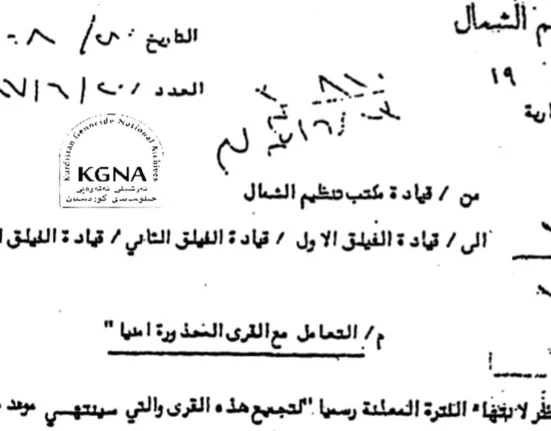
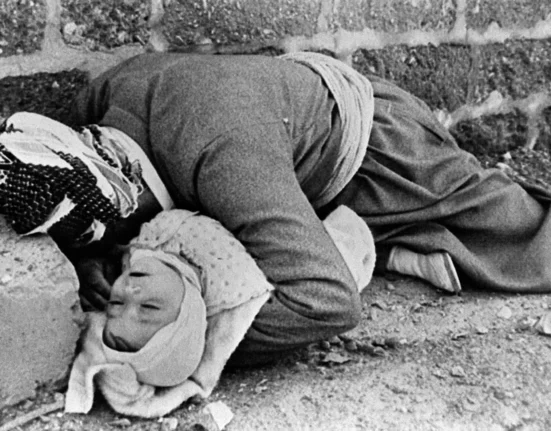
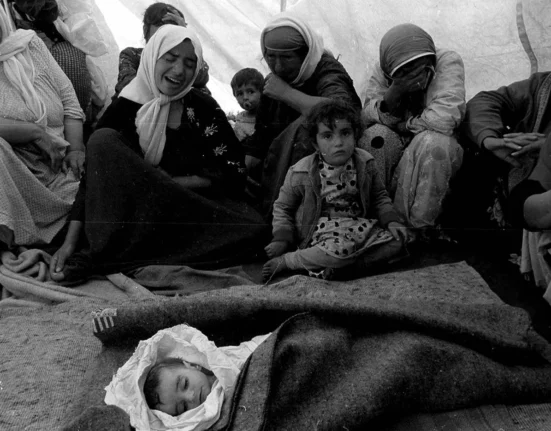
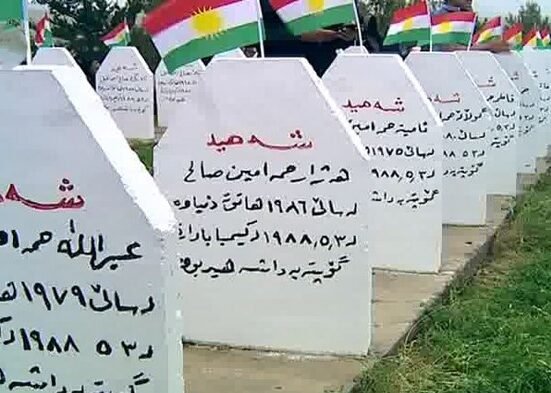
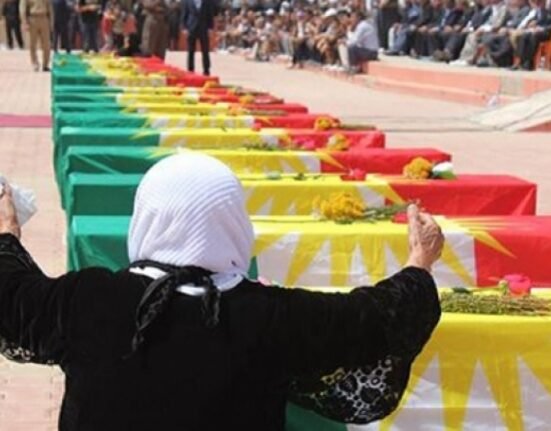
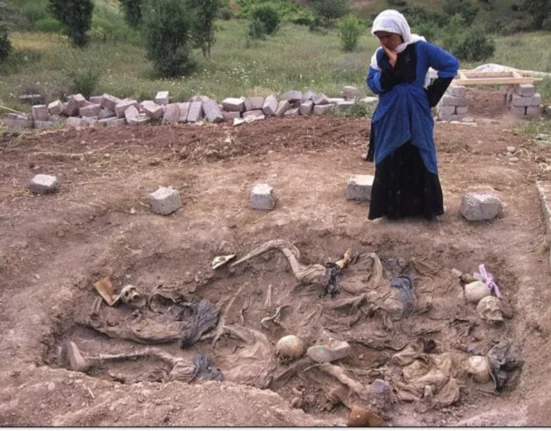
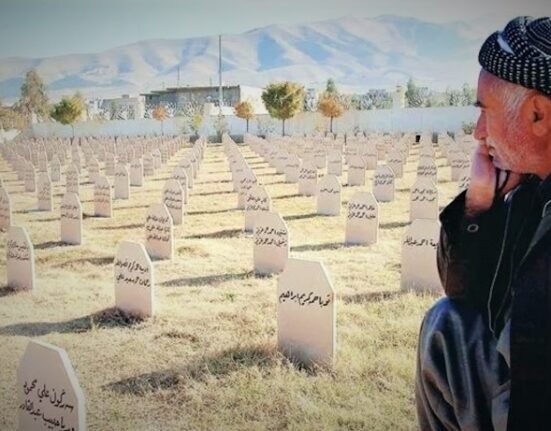

Leave feedback about this